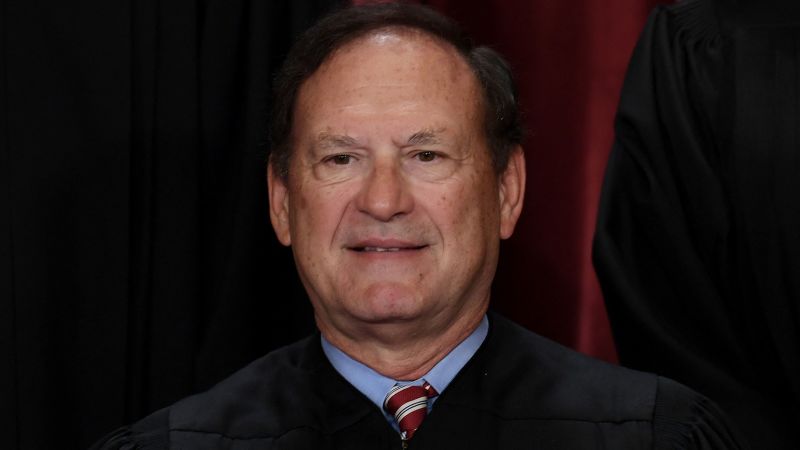Justice Samuel Alito faced criticism after an upside-down American flag was flown outside his home following the January 6, 2021, attack on the US Capitol. The flag, which became a symbol for former President Donald Trump’s supporters who claimed election fraud, was seen at Alito’s home in Virginia on January 17, 2021. Alito stated that he had no involvement and that his wife briefly placed the flag there, but critics were not satisfied, particularly given the timing and the Supreme Court’s involvement in election-related cases.
Alito’s explanation led to calls for him to recuse himself from cases involving the 2020 election challenges. The incident raised questions about whether Alito had violated the Supreme Court’s newly adopted code of conduct, which prohibits political activity by the justices. While the code is self-enforced, many critics argue that it does not go far enough in addressing ethics issues that have plagued the high court for years. Democratic lawmakers, including Sen. Sheldon Whitehouse and Sen. Dick Durbin, called for ethics reform for the Supreme Court in light of the flag incident.
Republicans were initially quiet in response to the incident, with some blaming the media for attempting to intimidate or harass justices. The Supreme Court did not immediately respond to requests for comment on the matter. The flag controversy came at a pivotal moment in the court’s term, as the justices worked to finish opinions by the end of June. Public support for the court has been low, and internal tensions have been evident, with Justice Clarence Thomas lamenting a loss of collegiality within the court.
The Supreme Court is currently considering two major cases related to the 2020 election and the Capitol attack. One case involves Trump’s claim of absolute immunity from election subversion charges, while the other concerns a rioter challenging an obstruction charge stemming from the January 6 riot. The incidents surrounding Alito and other justices have heightened calls for ethics reform and oversight of the high court. The lack of a formal ethics code that is enforceable on the Supreme Court has sparked debate about the need for greater accountability within the judiciary. Efforts by Chief Justice John Roberts to self-regulate the court’s behavior have been met with criticism, prompting lawmakers to push for legal standards for the justices.


